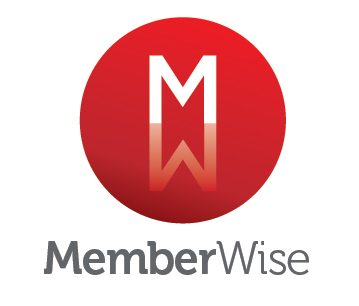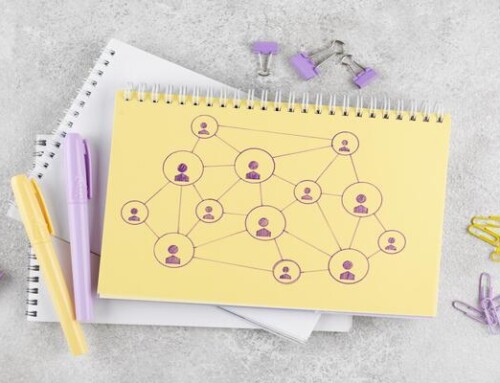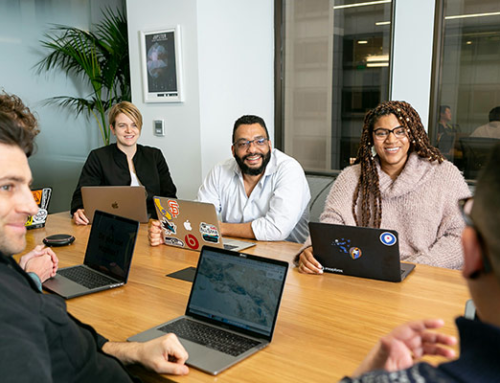– Amanda Rosewarne, Director
– CPD Standards Office (CPDSO)
“Just like paths in a forest, you lose the connections you don’t use.”
Neuroscientist and Author, David Eaglman
The CPD Standards Office has become increasingly interested in neuroscience and behaviour change and has started to focus some of their research on CPD in this area.
Over the past decade, neuroscience and behaviour change has been in the spotlight, with many business professionals interested in learning from science to understand how the human brain can be optimised for learning at work and for work. Never before has there been such a huge interest in the relationship between business and science, particularly within the division of neuroscience.
The CPD Standards Office stemmed from university research (forming part of the Professional Development Consortium). Hence the CPD Standards Office is delighted about this new bridge between academia and business and so in this article Anirudh Narendran explores the connection between CPD and neuroscience.
Background: The Human Brain
The human brain weighs a mere 3 pounds (1.36kg) but is a highly complex system that has evolved over millions of years. Homo sapiens, the first modern humans emerged in Africa 160,000 years ago and started migrating to Europe 50,000 years ago. Through time and space, humans have been shaped by their experiences and evolved to be the most intelligent species on earth; the brain has led humans to this unique status.
And now after centuries of trying, scientists are now successfully mapping the human brain with further technological advances in functional magnetic resonance imaging (fMRI) which takes highly detailed images of the brain. Watch here.
‘Neuroscience’ means ‘the scientific study of nerves in our brain and how it affects learning and behaviour’ and enables us to understand human behaviour and human only capacities in more depth. Neuroscientists have found that the adult brain never ceases to stop learning, we just need the right tools to continue to learn new and better behaviours.
Old dogs, new tricks
But in order to be good at work, how do we know what we know to get there? And what is needed to pursue real behaviour change for people to continually and intentionally develop their own knowledge, skills and personal qualities to perform their professional responsibilities to the highest standard? These two issues were discussed in the most recent CPD Standards Member events in Manchester and London and demonstrated through a light hearted film on how scientists in New Zealand have taught old dogs new tricks. Watch here.
We are shaped by our experiences and ultimately learn to do the right thing at the right time. The advancements in neuroscience has benefited our understanding of human behaviour which stems from a mixture of our childhood experiences (nurture) and our DNA and ‘genetic wiring’ (nature). Plus, there are also added ingredients such as our mood and emotions, our learned bahaviours from friends and family, life experiences, culture and norms and political beliefs which all affect how we contribute to the world on any given day.
Applying science to business
There are numerous psychometric tests the work place measures to understand the psychology of their employees. For example, the Myers-Briggs Type Indicator (MBTI), a psychometric test designed to indicate psychological preferences in how people perceive the world and make decisions. In context, the test can help employers recruit to form balanced teams, predict likely responses to given circumstances which may help leaders apportion tasks amongst the team’s strengths. However, a team or individual’s performance can fluctuate as they are affected by their world experiences. If an individual took the MBTI test five weeks later, they could fall into a different personality group.
‘Intelligence’ means the ability to acquire and apply knowledge and skills (Oxford Dictionary, 2016) and according to Professor Howard Gardner (1980), an American developmental psychologist, there are nine types of intelligences: naturalist, musical, logical-mathematical, existential, interpersonal, bodily-kinesthetic, kinesthetic, intra-personal and spatial. Gardener’s (1980) model argues that different minds need different resources and not one intelligence is better than the other.
A work environment which provides a high quality selection of learning resources can have an effect on peoples’ abilities to contribute to their job on any given day. Though, taking the time to practice learning a new skill can be difficult for someone if they are not given the right tools to match their intelligence.
We all have the ability to adapt to world around us to survive and master one or several forms of intelligence but we have to find the meaning and purpose within us to continue learning something that interests us. For example, a multilingual person should be considered as intelligent as a decathlete to a smart student scoring highly in maths tests to a pilot with ultra-spatial awareness. Just because you are good at one does not mean you are not talented in another form of intelligence. A person’s pursuit to be intelligent in one form or another is driven by their own life experiences and the perception of their meaning to continue learning.
And, when we learn something new and finally ‘get it’ a flush of dopamine goes through our brain, giving us a happy feeling. Our brains reward us for connecting the dots and we are rewarded with positive feelings about ourselves, motivating us to learn more (Kalat, 2007).
Going forwards for CPD
The modern advances in technology and scientific understanding of neuroscience has enabled scientists to map the complexity of human brains. Neuroscience has told us that adult brains never stop learning and can continually adapt to the world around them.
The understanding of neuroscience and behaviour change has helped humans create better learning resources for different intelligences. In the context of CPD, workers need the right resources that can enable them to practice over time and incrementally learn and improve on their professional skills to remain competent. Doing CPD can provide on-going value to one’s career, business and work-life balance.
The CPD Standards Office (CDPSO) works in collaboration with the MemberWise Network. Network Founder and Chair, Richard Gott, is the Chair of the CPDSO Expert Advisory Board (with MemberWise Ambassador and Director of the Professionalism Group, Susie Kay). Find out more…









Leave A Comment